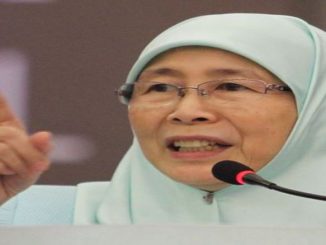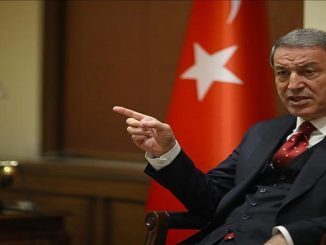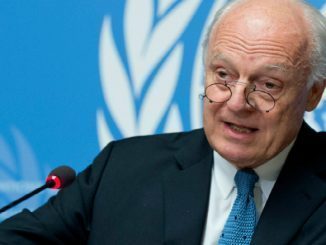
BY: MERVE ŞEBNEM ORUÇ*
Today, the world is more insecure and restless than ever, while people are concerned about the future. If not today, then when will the world powers step up to make revisions to prevent another global failure?
The League of Nations (LN), which was formed after WWI in the hope of becoming a forum where nations could settle their disputes at the international level, maintain world peace and prevent another world war, came into existence in 1920. However, the organization didn’t last long enough, as it failed to maintain its purposes. The Axis countries of Germany, Italy and Japan withdrew from the organization in the 1930s. Japan invaded Manchuria, Italy invaded Ethiopia and Germany invaded and annexed Austria, the Czech Sudetenland and finally all of Czechoslovakia. The LN was unable to prevent the Spanish Civil War or any of the aggressive actions that paved the way for WWII. During the war, the LN never gathered and ceased to function.
The LN officially lasted 26 years, and the United Nations (U.N.) replaced it after WWII. The name United Nations was coined by U.S. President Franklin D. Roosevelt and was first used in the “Declaration by United Nations” in January 1942 during the war when 26 representatives of the Allies pledged their governments to continue fighting together against the Axis powers. In time, the Allies started to refer to themselves as the United Nations. Although the U.S. hadn’t joined the LN, Roosevelt pioneered the new organization and convinced the Allies. After years of negotiations and months of planning, 27 countries signed the first agreement. The first U.N. Conference on International Organization opened in San Francisco in April 1945 attended by the governments of 50 countries, which became initial members of the U.N., and a number of non-governmental organizations involved in drafting the U.N. Charter, the foundational treaty of the U.N.
The U.N. officially came into existence in October 1945, upon ratification of the Charter by the five permanent members of the U.N. Security Council (UNSC) – the U.S., the UK, France, the Soviet Union and China – and by a majority of the other signatories. Since then, most countries in the world have ratified the Charter of the U.N., which has actually been led by the powerful UNSC. The mission of the organization is to promote international cooperation and preserve world peace just like its predecessor, the LN; however, the organization’s early decades were complicated by the Cold War between two permanent members of the UNSC, the U.S. and the Soviet Union. The U.N. was designed to intervene only in serious matters around the world, serving as a global council; yet, almost all serious matters have become a matter of conflict among the permanent members of the UNSC since it formed.
Just like the word “allies,” which denotes the countries that fought against the Axis powers in WWII when spelled with a capital “A,” has also started to be used by the U.S. to describe its own allies in time, the UNSC has proven to be a Western-centric organization mostly shaped by U.S. politics, as the actual winner of WWII was the U.S. While the U.S.-led Western powers of the Security Council have a long record of crossing the limits of the U.N. when it suits them as in Iraq or ignoring their primary responsibilities to international norms as in Rwanda, their traditional great power opponents, Russia and China are quick to catch up by utilizing their privileged positions to protect their own interests or their own friends, like in Syria.
Many critics have accused the U.N. of bureaucratic inefficiency, waste, corruption and the reluctance of members to achieve U.N. goals and its many failures to prevent the Cambodian genocide in the 1970s, the Srebrenica massacre in 1995, the Somali civil war in 1992-93 and many more. U.N. peacekeepers have also been accused of sexual abuse, rape, and child harassment during various missions in Africa. But mostly, critics focus on the structure of the UNSC, which poses as a body of justice and fairness for the countries of the world but works only for the interests of its small bloc of five permanent members.
The very existence of the UNSC undermines any claims to justice and fairness. The Security Council, of which five permanent members exclusively claim veto power, also has 10 non-permanent members that are elected on a regional basis to serve two-year terms; however, if a draft resolution put forward by one of the 15 members is vetoed by any of the five permanent members of the UNSC, it can’t be adopted. This veto power makes the organization the most unfair and unjust organization in the world; yet, it behaves as if it is just and fair. A powerful and authoritative elite holding discriminatory and biased privilege determines the fate of the whole world, insulting the rest of the countries and manipulating the perceptions of the international community.
Today, the U.N.’s own reports describe today’s global situation as “the greatest humanitarian crisis of our lifetime.” Accordingly, the world is facing the highest level of human suffering since WW II. More than 125 million people around the globe are in need of humanitarian help and protection, but the global system, which was supposed to prevent crises, is totally breaking down. President Recep Tayyip Erdoğan tirelessly says that there is a need to revise the current system and states the structure of the world order is the main reason for its failure, slamming the veto power of the five permanent members of the UNSC. He once again reiterated his famous motto “The world is bigger than five” in his address at the U.N. General Assembly this week, while the world is more alarming every day. Today, the world is more insecure and restless than ever, while people are concerned about the future. If not today, then when will the world powers step up to make revisions to prevent another global failure? Should we wait until we face another world war, lose millions of lives to make the necessary reforms and promise once again to preserve world peace? Can’t we learn from the past?
*Merve Şebnem Oruç is a Turkish journalist and columnist.
(Published in Daily Sabah Turkish newspaper on Thursday, Sept. 22, 2016)



